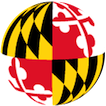University of Maryland Hosts LGBT Summit

By now, you’ve probably seen the viral dancing videos of a few of the members of the Maryland men’s basketball team. In a matter of days, Jaylen Brantley, Damonte Dodd and Jared Nickens racked up thousands of likes and collected responses from other basketball teams around the country. As their teammate, Varun Ram, pointed out, that’s just one example of the enormous social power that student-athletes possess.
How can student-athletes harness that power and use it to support the LGBT community? That’s the question panelists sought to answer Monday night at the College Park Marriott Hotel and Conference Center when the University of Maryland Athletics department teamed up with Athlete Ally and Parents, Families and Friends of Lesbians (PFLAG) in one of the first Division I athletics summit dedicated solely to discussing LGBT issues.
“We can kind of translate [the viral video] into social justice for an issue like this,” Ram said. “I can’t imagine how much of an impact we could make on society.”
Hudson Taylor, a former Maryland wrestling All-American, spoke about Athlete Ally, the nonprofit organization he founded to provide education, tools and resources to create a more inclusive atmosphere in sports communities.
“When athletes use their cultural capital to fight for social and political things, it has more of an impact than anything else in the world,” Taylor said. “Sport is one of the few institutions that speaks across countries, religions, beliefs, generations. It is a universal thing that speaks every language… As student-athletes, you all have a tremendous opportunity to make history.”
Jamie Henkel, Equality and Diversity Partnerships Manager for PFLAG, also spoke on what coaches and athletes can do to support their teammates, as well as what athletes who are out can do to educate their peers.
Henkel advised coaches to set the tone by using inclusive language and creating a zero-tolerance policy for inappropriate jokes, and suggested players support their teammates by becoming allies through the Rainbow Terrapin Network, which trains the University of Maryland community to be more LGBT inclusive.
The summit also featured a panel, moderated by Dr. Martha Nell Smith of the University of Maryland English department, Maryland field hockey head coach Missy Meharg, Maryland men’s soccer head coach Sasho Cirovski, Maryland School of Public Health human sexuality associate professor Dr. Robin Sawyer, Maryland wrestler Geoff Alexander, Taylor and Ram.
The panel acknowledged how far the movement has come, but also how far it still has to go. Sawyer, in particular, noticed how much more inclusive the generation of student-athletes sitting in front of him were than the ones he went to school with.
“Your generation has done more for acceptance… I don’t know why you bring us in anymore,” Sawyer said. “If you would have told us five years ago that we would have same-sex marriage, I wouldn’t have believed you. I’ve never seen anything of that discipline changed so quickly. Yes, we have a whole lot to do, but kudos to this generation for really being accepting and changing the world.”
Cirovski shared the story of one of his former players, Robbie Rogers, who went on to become the first openly gay male athlete in Major League Soccer. Cirovski noted that Rogers was comfortable as a player at Maryland, but the fact that Rogers waited to come out until he had a steady professional career speaks volumes about how team dynamics and locker room culture still need to change.
All panelists agreed that the best way to make those changes was to continue having conversations just like the ones they had Monday night.
“We’re going to be better people when we walk outside those doors today,” Cirovski said.






